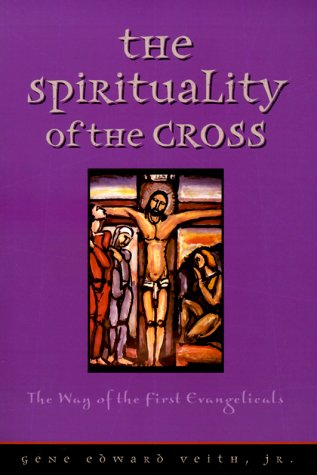This short book is somewhat becoming a classic in modern North American Lutheranism. The aptly-phrased-title sets the tone for an irenic conversation that introduces the modern evangelical to the contours of the Lutheran faith and practice. Like C.S. Lewis, Dr. Veith is a layman writing for the layman. He conscientiously avoids exegetical side-bars and explains distinctive teachings of the Lutheran faith in ways that keep the conversation at the heart of what this is all about, namely, the Gospel. Yet, unlike C.S. Lewis in Mere Christianity, Veith takes the reader from the “hall” of Christianity and shows him around one of the rooms.
The Spirituality of the Cross has smooth writing. There are seven short chapters (including the introduction) that transition from one Lutheran paradox to another: Law and Gospel (sin and grace), the presence of God in Word and Sacrament (Baptism and the Lord’s Supper), the hiddenness of God (a theology of glory versus a theology of the cross), Vocation (the spirituality of ordinary life), and living in two kingdoms (sacred and secular).

The appendices in the revised edition include an essay that frames Lutheranism, not only in terms of its evangelical character, but also in terms of its ‘catholicity’ and how those are not exclusive terms. The book, according to its title, however, clearly isn’t intended for a Catholic audience. This section would more likely resonate with someone who feels disengaged in their individualistic, evangelical faith, and, who might be drawn towards certain aspects of the Catholic Tradition that he or she might not have known to exist in other protestant churches.
One of the unique things about this book is that it brings the spiritual, experiential perspective of Dr. Veith, as one who had drifted from denomination to denomination, and religion to religion (Liberal Christianity, Fundamentalism, and Buddhism ), and how he had come to join a traditional Lutheran church. On the other hand, even though this is not a major focus of the book, I found that he could have been more nuanced and flexible in his presentation of how God speaks to his people today (in the Bible) as opposed to direct revelation. Other than that, there didn’t seem to be much to quibble over.
The content of the book is an excellent start for someone interested in Lutheran spirituality or why someone might want to consider Lutheranism. It would also be a good read for someone wanting to understand why their fellow brother or sister in Christ would be a Lutheran Christian. While The Spirituality of the Cross doesn’t intend to be a theological argument, it does provide a list of sources that one could use to engage with the content on a deeper level. It is more of an appetizer or a sample rather than the whole main course. Or for someone who reads works of theology quite frequently, it is more like desert.